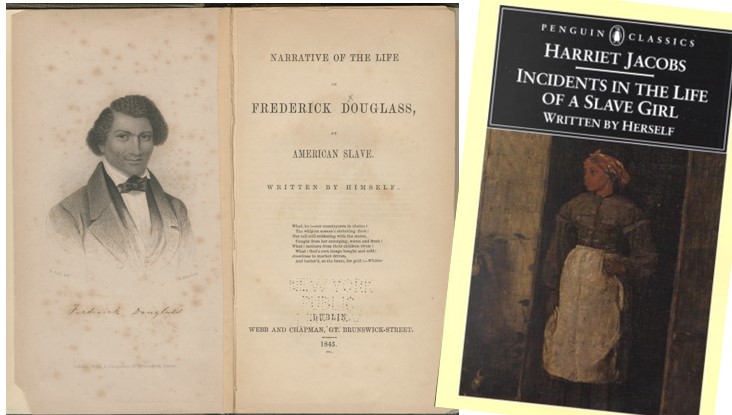
By Elizabeth Cali
Slave narratives are a genre of autobiographical literature composed by African American writers representing their experiences of enslavement and their pathways to freedom before slavery was outlawed. Their express rhetorical purpose was to advocate for the abolition of slavery. But for African American writers, they are part of the larger genre of black autobiography or life writing, and thus served many more purposes in portraying first-hand experience of antebellum Black life. While readers for many years considered slave narratives to be historical documents conveying the facts of enslavement, slave narratives also constitute complex works of literary and creative expression.
Because white abolitionist presses in the US and abroad were the most politically expedient pathway to getting one’s story published, the authors of slave narratives regularly navigated the politics of telling the story they wanted to tell about their lives within and beyond enslavement and telling the story that white abolitionists were marketing to primarily white audiences.
Hence, slave narratives typically share a set of conventions or characteristics that abolitionist editors expected formerly enslaved people to include and emphasize in the telling of their stories. Concurrently, the authors of slave narratives asserted agency over their stories in many ways. Consequently, slave narratives make myriad subjects, themes, and ideas their central focus.